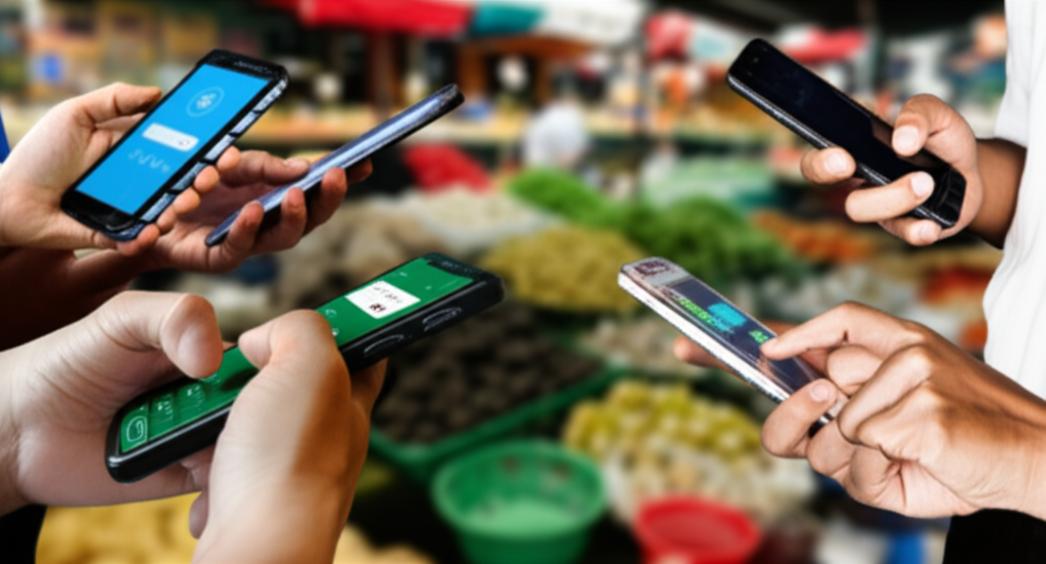Fintech Solutions Empowering Low-Income Populations

Fintech: A Catalyst for Financial Inclusion among Low-Income Populations
In today’s digital age, financial technology (fintech) is emerging as a powerful tool for promoting financial inclusion, especially among low-income populations. Traditional financial institutions often struggle to serve these communities due to high operating costs, lack of infrastructure, and perceived risk. Fintech solutions, however, offer innovative and cost-effective ways to bridge this gap.
What is Fintech and Why Does it Matter for Low-Income Individuals?
Fintech encompasses a broad range of technology-driven financial services, including mobile banking, digital payments, micro-lending, and robo-advisors. These technologies can significantly reduce the cost of providing financial services, making them accessible to individuals who were previously excluded from the formal financial system.
Who are we talking about? Low-income populations often lack access to basic financial services like bank accounts, credit, and insurance.
What are the challenges? These include high fees, inconvenient locations of traditional banks, and lack of credit history.
Where does fintech come in? Fintech offers alternative solutions through mobile apps, online platforms, and innovative credit scoring methods.
Why is this important? Financial inclusion empowers individuals to save, invest, and manage their finances more effectively, leading to improved economic well-being.
When is this happening? Fintech adoption is rapidly increasing globally, with a significant impact on low-income communities.
How is this achieved? Through innovative technologies that reduce costs, improve accessibility, and tailor services to the specific needs of these populations.
Key Fintech Solutions for Low-Income Communities
Mobile Banking and Digital Payments:
- Description: Mobile banking platforms and digital payment systems allow individuals to conduct financial transactions using their smartphones, even without a traditional bank account. This is particularly beneficial in areas with limited banking infrastructure.
- Example: M-Pesa in Kenya revolutionized financial inclusion by enabling millions of unbanked individuals to send and receive money via their mobile phones. (Source: https://www.gsma.com/mobilefordevelopment/programme/mobile-money/)
Micro-lending Platforms:
- Description: Micro-lending platforms use alternative credit scoring methods, such as social network analysis and mobile phone data, to assess the creditworthiness of individuals who lack a formal credit history. This enables them to access small loans for business ventures or personal needs.
- Example: Kiva is a well-known micro-lending platform that connects lenders with entrepreneurs in developing countries. (Source: https://www.kiva.org/)
Insurtech Solutions:
- Description: Insurtech companies are leveraging technology to offer affordable and accessible insurance products to low-income populations. These products can protect individuals and families from financial shocks caused by illness, accidents, or natural disasters.
- Example: BIMA provides mobile-delivered insurance products to low-income customers in Africa and Asia. (Source: https://www.bima.com/)
Robo-Advisors and Financial Education Platforms:
- Description: Robo-advisors provide automated financial advice and investment management services at a low cost. Financial education platforms offer online courses and resources to help individuals improve their financial literacy and make informed financial decisions.
- Example: Acorns is a micro-investing app that allows users to invest small amounts of money automatically. (Source: https://www.acorns.com/)
The Role of POS Ebiz in Empowering Businesses
For businesses serving low-income communities, efficient point-of-sale (POS) systems are crucial for managing transactions, tracking inventory, and providing seamless customer service. POS Ebiz offers a range of solutions tailored to the needs of small and medium-sized enterprises (SMEs), helping them to streamline their operations and improve profitability. Consider these benefits:
- Efficient transaction processing
- Inventory management
- Customer relationship management
- Sales reporting and analytics
Challenges and Opportunities
While fintech holds immense potential for financial inclusion, there are also challenges to overcome. These include:
- Digital Literacy: Many low-income individuals lack the digital skills necessary to use fintech products and services.
- Data Privacy and Security: Protecting sensitive financial data is crucial to building trust and ensuring the responsible use of fintech.
- Regulatory Frameworks: Clear and supportive regulatory frameworks are needed to foster innovation while protecting consumers.
Despite these challenges, the opportunities for fintech to transform financial inclusion are vast. By addressing these challenges and leveraging the power of technology, we can create a more inclusive and equitable financial system for all.
Conclusion
Fintech is revolutionizing the way low-income populations access and manage their finances. By offering innovative and affordable solutions, fintech is empowering individuals to improve their economic well-being and build a more secure future. As technology continues to evolve, the potential for fintech to drive financial inclusion will only continue to grow.
Consider exploring POS Ebiz solutions to enhance your business operations and better serve your community. Visit our store to discover the possibilities: https://www.phanmempos.com/cua-hang

